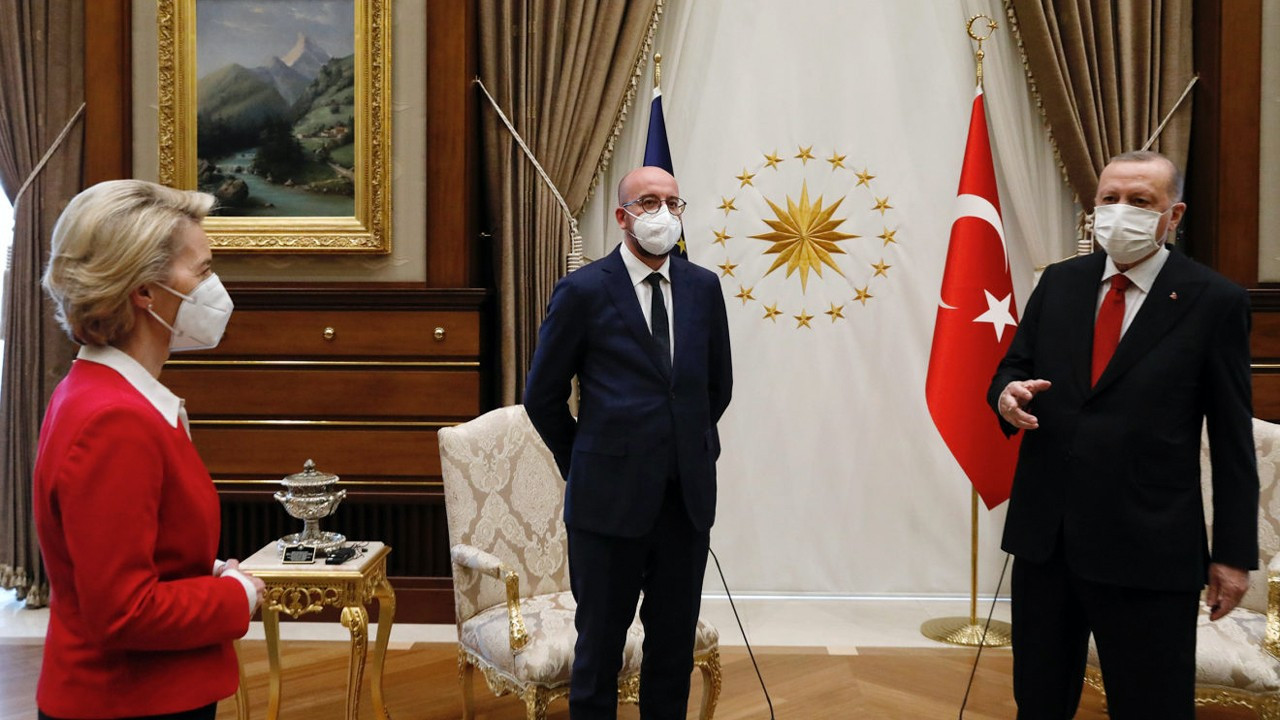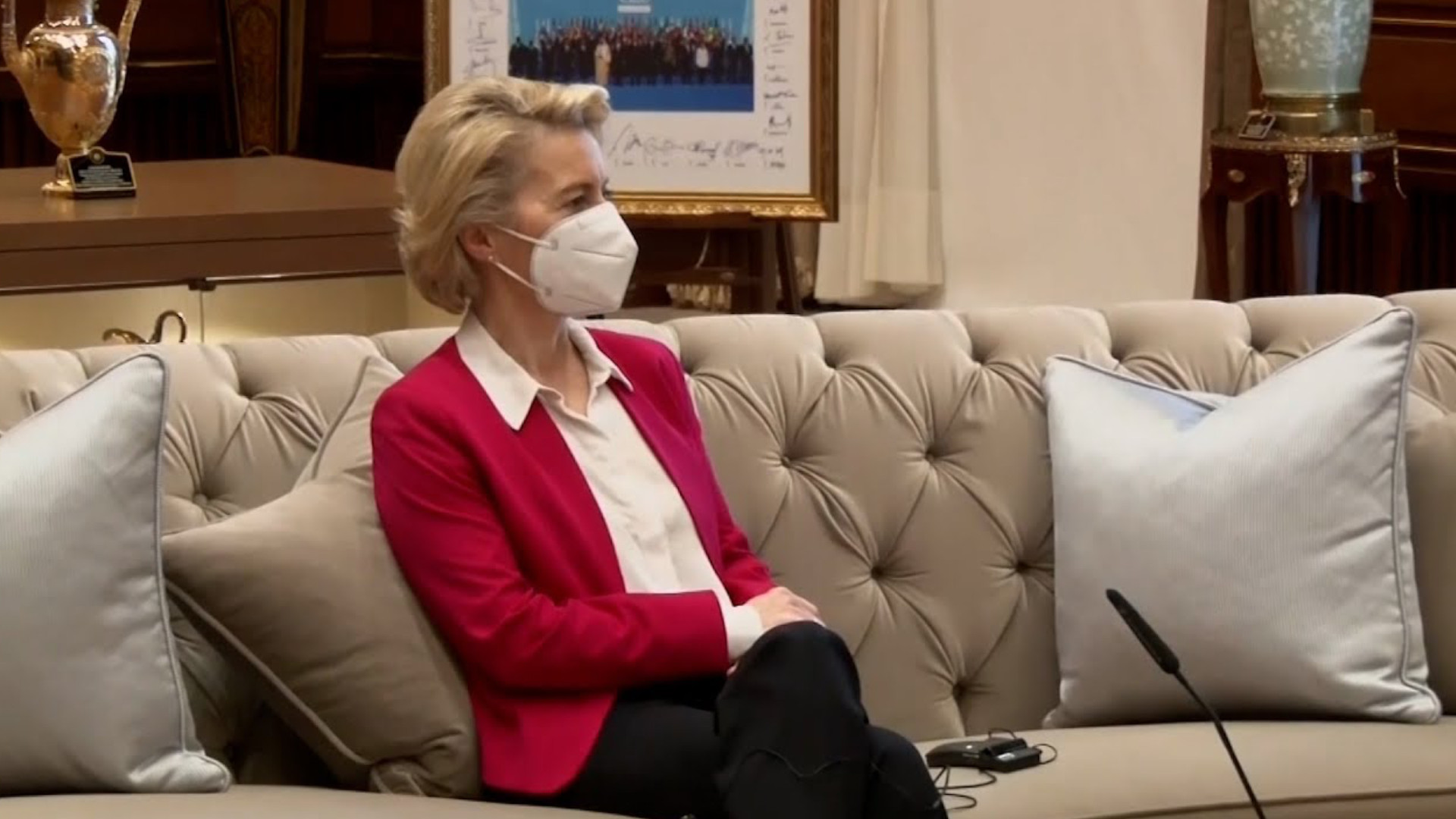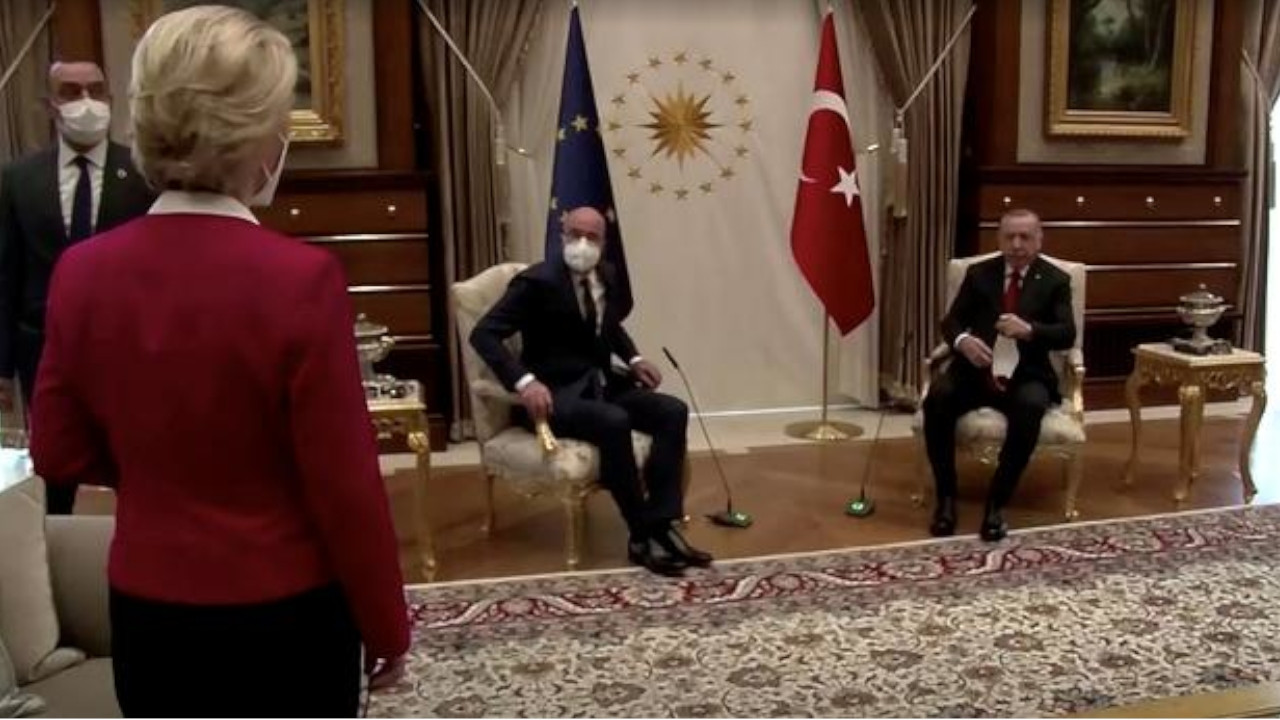Von der Leyen says she will 'never allow sofagate to happen again'
European Commission President Ursula von der Leyen said that she will never allow another sofagate incident to take place. European Council President Charles Michel, meanwhile, said that he is suffering from bad nights due to his embarrassment over sofagate.
Duvar English
European Commission President Ursula von der Leyen said that she wasn't going to let another sofagate instance occur, Politico reported on April 12, almost a week after she was left standing in a meeting with European Council President Charles Michel and Turkish President Recep Tayyip Erdoğan.
Von der Leyen and Michel tried on April 12 to move beyond the seating scandal that overshadowed their visit to Ankara last week and highlighted tensions between two of the EU’s top leaders and their institutions.
The two met at Commission HQ in Brussels for their first tête-à-tête since last week's incident, in which Erdoğan and Michel sat in stately chairs while von der Leyen, the first female president of the Commission, had to settle for a seat on a nearby sofa.
Critics accused Erdoğan of trying to divide the two leaders and of downgrading the female president, while Turkish officials insisted they had simply followed protocol. But Michel also came under heavy fire from across the European political spectrum, accused of having been complicit in allowing von der Leyen to be treated poorly.
After the meeting on April 12, officials from both sides gave bland readouts. The Commission said the two presidents had focused on “topical issues,” while a Council official spoke of “constructive” discussions.
A Commission official said bluntly that “the president made clear that she will never allow such a situation to arise again.”
A diplomat, meanwhile, told Politico that sofagate could be harmful to the EU.
“Many outside the EU say that the EU foreign policy is a joke, and now we have this. We surely didn’t need it.”
Soon after the incident, von der Leyen and Michel’s teams gave differing accounts of what had happened. Michel’s team said everything ran followed to protocol, asserting the Council president is higher in the diplomatic pecking order. The Commission argued that von der Leyen should have been seated in the same way as Erdoğan and Michel.
While officials cited treaties and legal texts and pointed to previous examples, many observers said the issue ultimately came down to political symbolism, and the EU had messed up badly on that front.
Later in the week, Michel admitted he may have made a mistake but said he feared speaking out at the time would have caused a diplomatic incident. He expressed regret and distress over the episode.
Adding to the confusion was an apparent disconnect between the Council team and the local EU delegation in Turkey in making arrangements for the visit. Officials also noted that the Commission had not sent its own advance protocol team, citing coronavirus restrictions.
At a regular news briefing earlier on April 12, Commission spokesman Eric Mamer refrained from making any assessment of current relations between the Commission and the Council. He noted rather drily that “cooperation between the Commission and the council presidents will of course and naturally continue to the benefit and in the interest of the EU and of its citizens.”
Sofagate prompted outrage from many female MEPs, who argued it was less about protocol and the pecking order of EU institutions and more about problems linked to male leadership.
“What happened in Ankara happens often to women: Men very naturally tend to take the first place, leaving women behind,” Iratxe García Perez, the leader of the Progressive Alliance of Socialists and Democrats group in the European Parliament, told Politico.
“Then we are left in a situation in which we have to fight for our place, as if leadership was about strength and about imposing yourself.”
“It’s time to change that perspective,” Garcia added.
Michel had told German newspaper Handelsblatt that he was suffering from bad nights due to his embarrassment over sofagate, and women's organizations in Europe urged him to resign over the gaffe.
A petition urging Michel to resign had also said that the leader had made an error not just against the respective organizations involved, but also women's rights as a whole.

 European women petition for Michel's resignation over sofagateWomen
European women petition for Michel's resignation over sofagateWomen Ursula standingWorld
Ursula standingWorld Sofagate points to EU representation problem World
Sofagate points to EU representation problem World